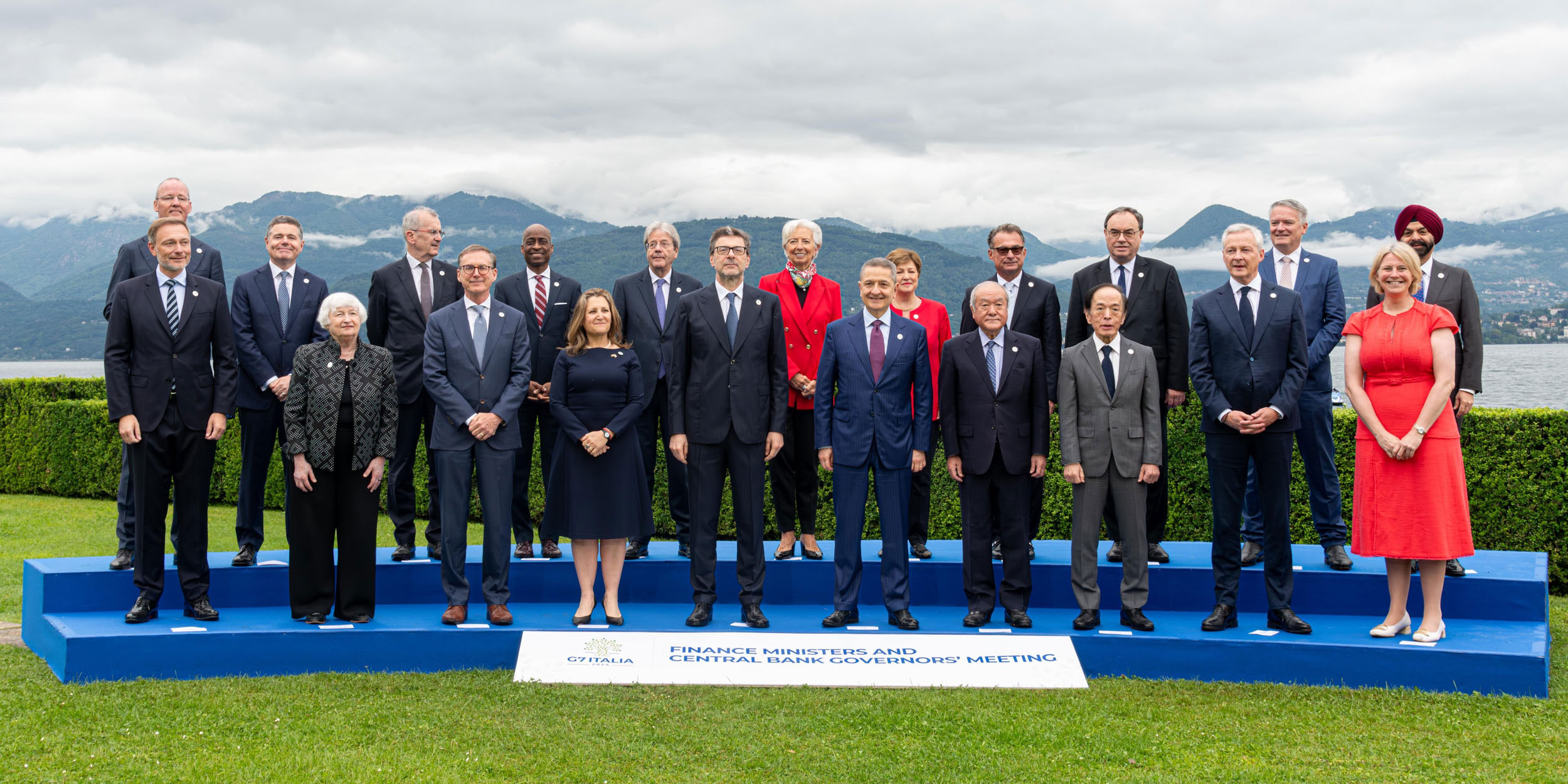The G7 Finance Ministers and central bank governors held a meeting from 23–25 May, 2024, at Stresa, Italy, during which they issued a Communiqué reaffirming their commitment to creating a more stable and equitable international tax system.
The meeting was joined by the Ukrainian Finance Minister Sergii Marchenko, The Heads of the International Monetary Fund (IMF), World Bank Group (WBG), Organisation for Economic Cooperation and Development (OECD), Financial Stability Board (FSB), African Development Bank (AfDB), Gavi, the Vaccine Alliance, the Committee on Payments and Market Infrastructures’ (CPMI) Secretariat and the Financial Action Task Force (FATF).
An outreach session was also held with Brazil, Mauritania (representing the African Union), the Republic of Korea, and Saudi Arabia.
Over the course of this session, the group exchanged views on the global implications of Artificial Intelligence, ongoing initiatives for development and cross-border payments, and agreed to continue working in close cooperation in relevant multilateral fora, such as the G20.
“We reiterate our strong political commitment to establish a more stable and fairer international tax system fit for the 21st century. The implementation of the Two-Pillar Solution is our top priority, and we remain committed to finalising the work within the OECD/G20 Inclusive Framework with a view to signing the Multilateral Convention on Pillar One by the end of June, 2024,” reads the release.
The parties called on all members of the Inclusive Framework to make every effort toward this goal.
“We welcome that an increasing number of jurisdictions have implemented or started the implementation of Pillar Two in their domestic legislation and support ongoing work to ensure consistent implementation. We look forward to the signing ceremony of the Multilateral Instrument for the implementation of the Subject-to-Tax-Rule later this year.”
The group welcomes progress made on tax transparency and supports the effective implementation of the Crypto Asset Reporting Framework by the relevant jurisdictions, with the aim of commencing first exchanges by 2027 or 2028 at the latest.
“We welcome the OECD ‘2024 Progress Report on Tax Co-operation for the 21st Century’ and look forward to possible ways to further enhance the administrative co-operation and continue exchange of information for tax purposes.”
Noting the discussions emerging in several fora, the parties remain committed to fostering international cooperation on tax issues, building on the existing achievements, with a broad participation of developing and developed countries.
They will continue to work constructively with the Brazilian G20 Presidency to advance international tax co-operation.
“We will work to increase our efforts aimed at progressive and fair taxation of individuals.”
With regard to the discussions at the UN Ad Hoc Committee to Draft Terms of Reference for a United Nations Framework Convention on International Tax Cooperation, the group of finance ministers and central bank governors reiterated the importance of (i) consensus-based decisions to support a stable and predictable international tax system and promote an inclusive and effective international tax cooperation, (ii) prioritising issues more likely to achieve consensus, and (iii) focusing on enhancing domestic resource mobilisation and capacity building in tax matters for countries in need.















